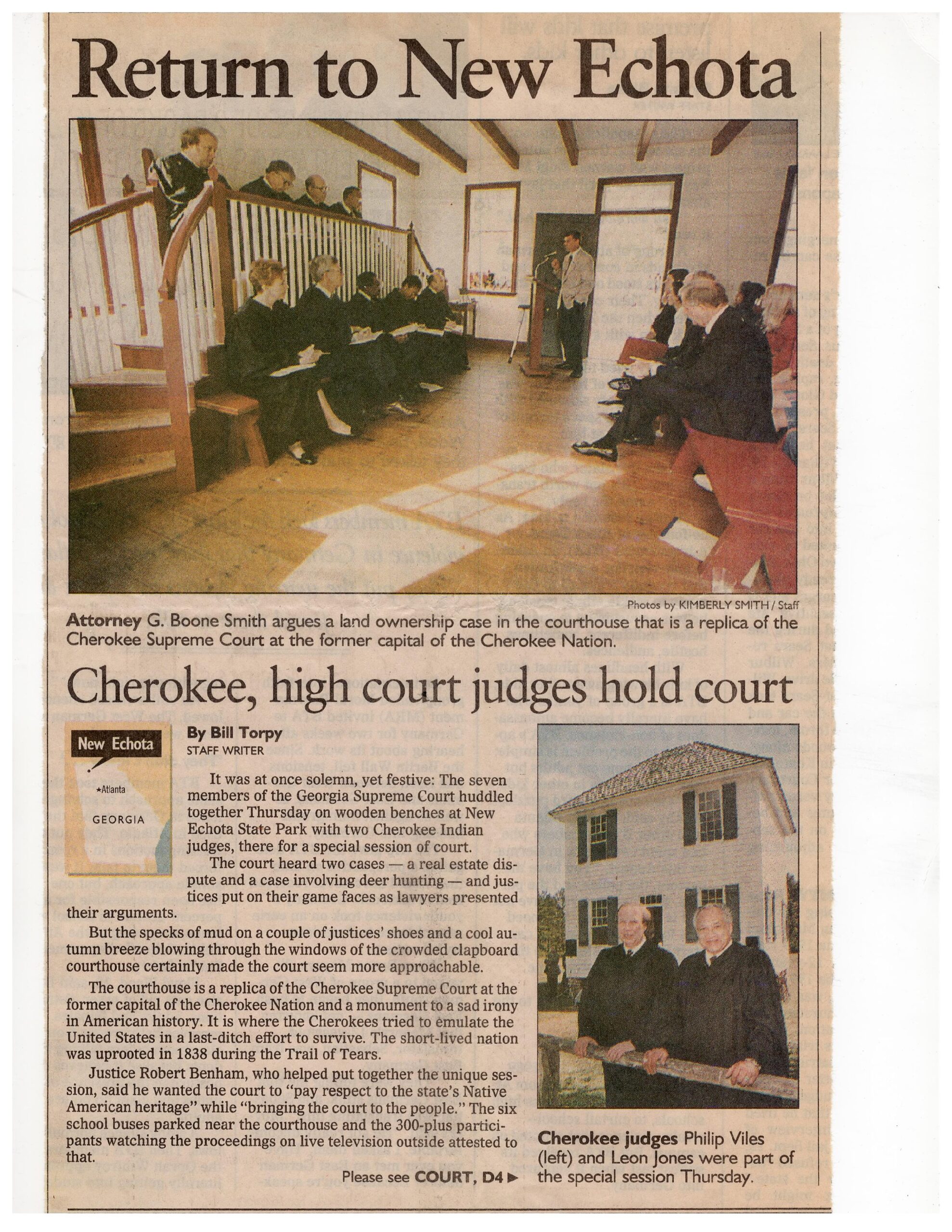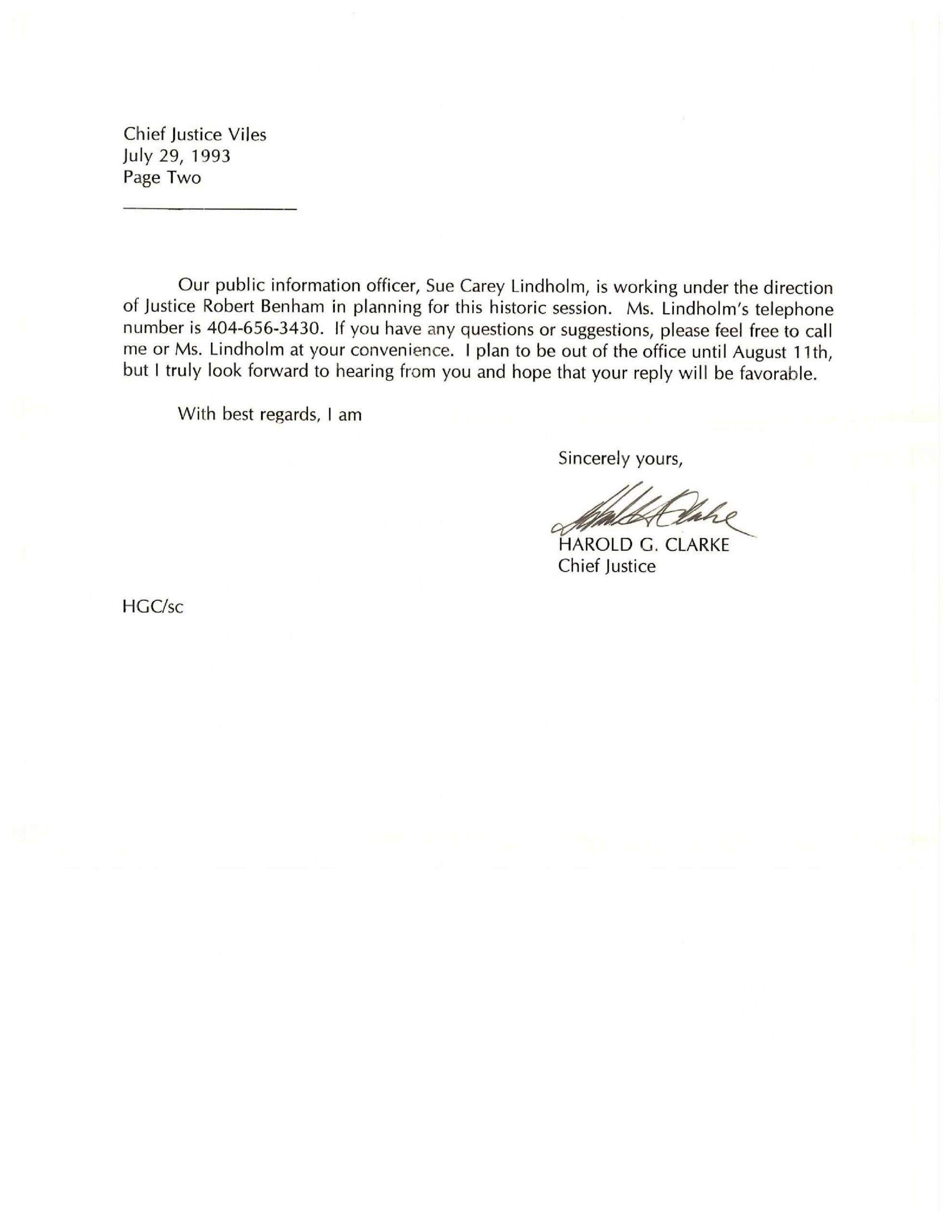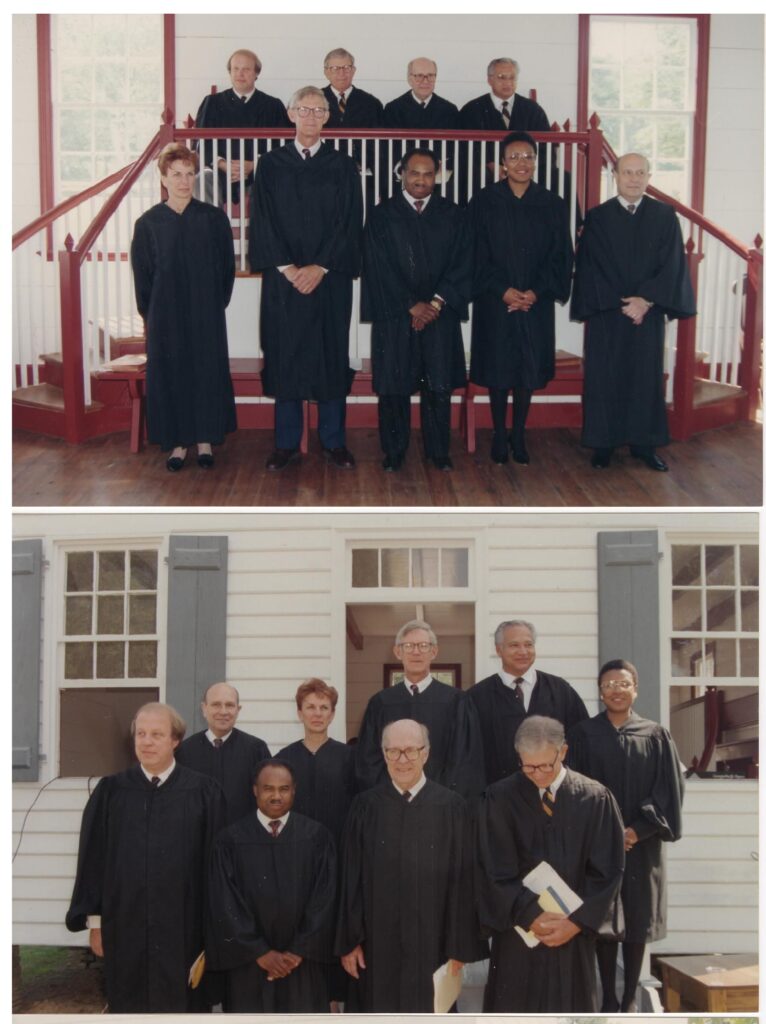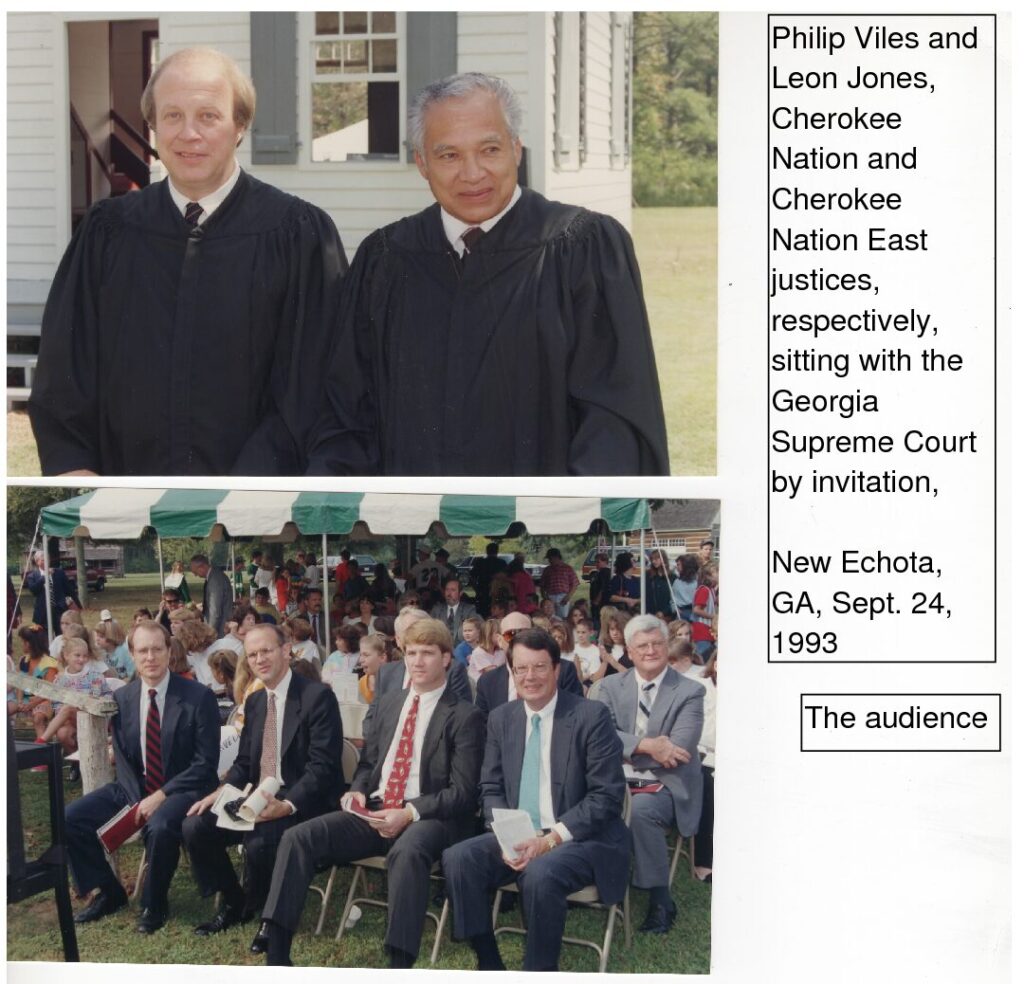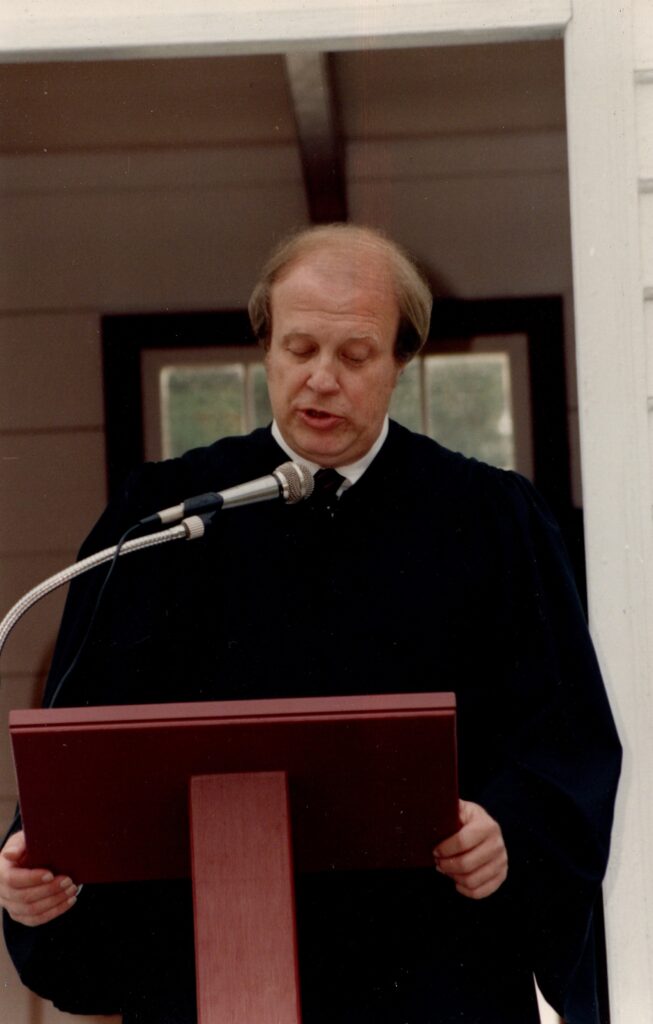Philip H. Viles, Jr.
Professor Philip Viles has been affiliated with The University of Tulsa for almost 59 years as a student, an employee (Director of Annual Giving), a donor, and as an adjunct faculty member. He retired from the U.S. Department of the Interior in May 2013 after serving ten years in Washington, DC under the Assistant Secretary—Indian Affairs in the George W. Bush and Barack Obama administrations.
The last six of those years, Viles managed a guaranteed loan program with a $75 million/year guarantee budget and a $520 million portfolio of loans and loan guarantees, supervising 15 employees across five time zones, using his TU degrees (JD, MBA) on a daily basis.
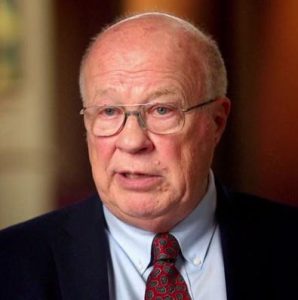
Viles is a citizen of the Cherokee Nation and served continuously on that Nation’s highest court for over 25 years, 16 years of those as Chief Justice of the Cherokee Nation. He was invited to sit with the Supreme Court of Georgia in September, 1993 to hear two cases. In 1994, he had private meetings with two Associate US Supreme Court Justices (Breyer and Ginsburg) and Chief Justice Rehnquist in 1994 in their chambers, after which, Rehnquist moved Viles’ admission to the US Supreme Court. Three years later, Viles met with C.J. Rehnquist again, and three years after that, had a private meeting with Attorney General Janet Reno and two of her top aides, in her office, to discuss Cherokee affairs. Viles is licensed to practice in the courts of the Cherokee Nation, all Oklahoma courts (since 1975), two of the three federal district courts in Oklahoma (Northern District and Eastern District), and in the U.S. Supreme Court. He is a member of the Master Lawyers section of the Oklahoma Bar Association.
Because of his working relationship with Cherokee Principal Chief Wilma Mankiller and his almost 30 years’ service to the Cherokee Nation, Viles was interviewed for the documentary film “Mankiller” and has his own listing in IMDb, the Internet Movie Database.
Professor Viles served as one of only 79 delegates to the 1999 Cherokee Nation Constitutional Convention, Tahlequah, Oklahoma. (It had been 160 years since the Cherokees’ previous constitutional convention.) He was awarded the Cherokee National Medal of Patriotism in 2003, “in recognition for service to the tribe and upholding the Cherokee Constitution”. Viles is a veteran of the U.S. Air Force and holds five military decorations from the United States, two from the Republic of Vietnam, and one from the Cherokee Nation.
Viles served as a director of two Oklahoma banks over a 22-year period and was on the board of directors of two other Oklahoma financial service firms between 1985 and 2000. He has experience as a bank trust officer and a small-business owner. On February 12, 2024, he was named Banking Director for the Catawba Digital Economic Zone (CDEZ), a special jurisdiction within the Catawba Reservation in South Carolina, aimed at empowering emerging digital technology companies, including Bitcoin companies. This is the first sovereign DEZ and the first tribally-chartered financial system in the United States. For more information, see first Tulsa Law Review article below.
A life member of the Oklahoma Historical Society and the Cherokee National Historical Society, Viles is also a charter member of the National Cowboy Hall of Fame (now known as National Cowboy & Western Heritage Museum) and the United States Capitol Historical Society. He is a long-time member of the Rotary Club of Tulsa. From early 2022 until late 2023, Viles volunteered at the Coffee Bunker in Tulsa, listening to fellow veterans talk about their legal problems and helping whenever possible. He is a life member of the Disabled American Veterans.
His publications include:
- W. G. Guedel & Philip H. Viles, Jr., Digital Economic Zones: A Program for Comprehensive Tribal Economic Sovereignty, 57 Tulsa L. Rev. 591 (2022).
- Philip H. Viles, Jr., & W. G. Guedel, Energy Sovereignty for Native American Nations: The Model Tribal Energy Code, 59 Tulsa L. Rev. 67 (2024).
- Dr. Greg Guedel and Philip H. Viles Jr., The Model Tribal Energy Code: Energy Sovereignty for Native American Nations, 95 Oklahoma Bar Journal No. 4, pp. 50-53 (April 2024)
- NATIONAL STATUARY HALL: GUIDEBOOK FOR A WALKING TOUR, 2 editions (1995 and 1997) which he parlayed into seven live national TV appearances on C-SPAN’s “Washington Journal”
- Introduction to The J.B. Milam Library: A Short-Title Catalog, issued by McFarlin Library of the University of Tulsa, 1993, where Milam’s library of books and papers is held in Special Collections. Viles and two cousins made this donation to TU in 1993; J.B. Milam was their grandfather and served as Principal Chief of the Cherokees from 1941 until his death in 1949.
- Five essays in Notable Native Americans (1994), Gale Research:
- Jim Thorpe, all-around athlete and Olympic hero
- Ross Swimmer, former Cherokee chief and BIA head
- John Rollin Ridge, Cherokee poet, author and editor
- Stand Watie, Cherokee tribal leader and Confederate general
- Elias Boudinot, Cherokee leader, translator and editor
- Seven essays in the twenty-volume work American National Biography (1998), Oxford University Press, subjects: Revolutionary War Gen. John Stark of New Hampshire, U.S. Rep. Clarence J. Brown from Ohio, muralist Allyn Cox, and sculptors Daniel Chester French, Richard E. Brooks, Mahonri Young, and Horatio Stone
- Article (“The Cover”) in Libraries and Culture, Winter 1999, about the J.B. Milam Library, part of Special Collections at the University of Tulsa. Article by Jerrie Hall, Sidney F. Huttner & PHV.
- Foreword for The Brainerd Journal : A Mission to the Cherokees, 1817-1823, University of Nebraska Press, 1998.
- Contributor to “Growing Economies in Indian Country: Taking Stock of Progress and Partnerships”, published by the Board of Governors of the Federal Reserve System, 2012.
- Editor and author of the Foreword of “Bring Me Back Alive: A Memoir of Adventure, Luck, and Terror in the Air”, written by his college friend, Spalding Kenan Manson, 2019.
- Three submissions to the Tulsa World (1991-1996) when the paper invited readers to submit 650-word essays on any subject: “Tulsa Traffic Questions“, “Sorting Out The Saints“, and “‘Pick 6′ Stocks Winners“.
Notes to his education:
- M.L.I.S., University of Oklahoma: selected by the faculty for Beta Phi Mu (international honor society)
- M.B.A., University of Tulsa; member of TU’s Loyalty Society.
- J.D., University of Tulsa: was a member of the Tulsa Law Journal (now the Tulsa Law Review) and Phi Delta Phi (international legal honor society)
- B.A., University of Virginia: lived on The Lawn in a room built in the 1820s, an honor reserved for 47 graduating students “who have made significant contributions to the University”, member of Beta Theta Pi (social fraternity) and Delta Sigma Pi (professional business fraternity). Echols Scholar, member of The Thomas Jefferson Society and has been a member of both the 1838 Society and the Rotunda Society. At the University, he was a member of the Jefferson Literary and Debating Society, founded in 1825 and the second oldest Greek-lettered organization in the United States, after Phi Beta Kappa.
Meetings With Justices of the U.S. Supreme Court
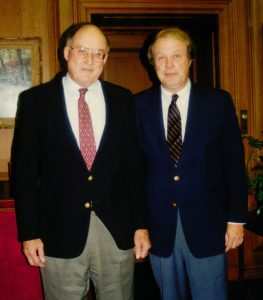
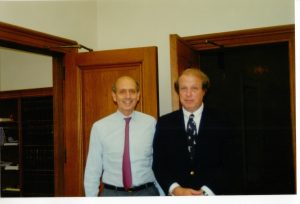
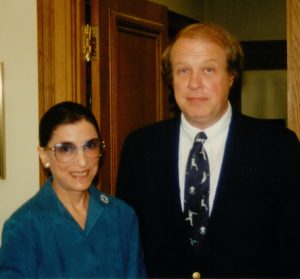
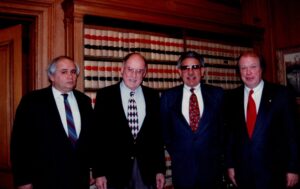
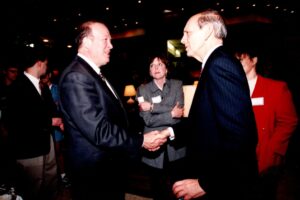
Service on the Cherokee Nation Judicial Appeals Tribunal (now the Supreme Court) 1976-2002, 16 of those years were as Chief Justice of the Cherokee Nation


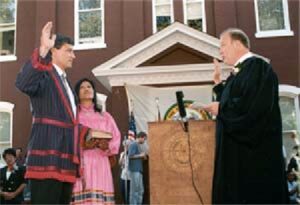
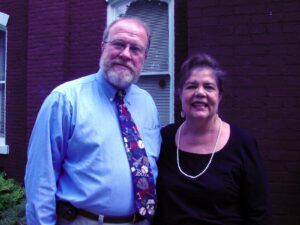

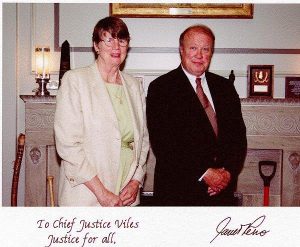
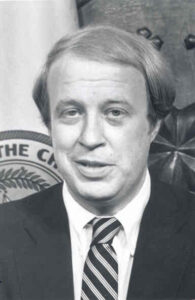



My 1993 invitation to sit with the Georgia Supreme Court at New Echota, GA, capital of the Cherokee Nation East (before removal in the 1830s)
National television appearances: 7 live on C-SPAN 1 taped on Today Show

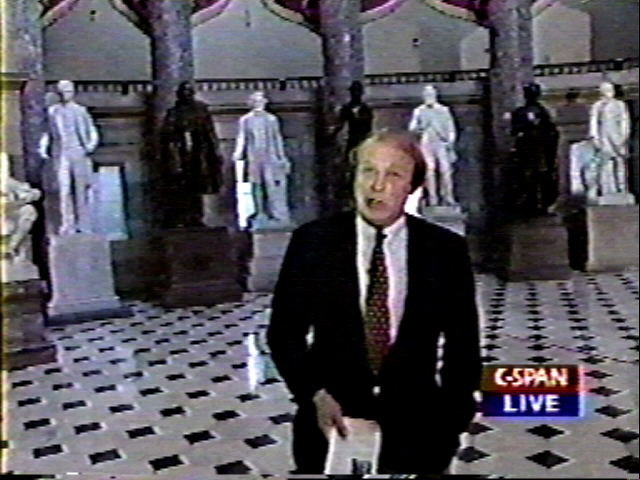
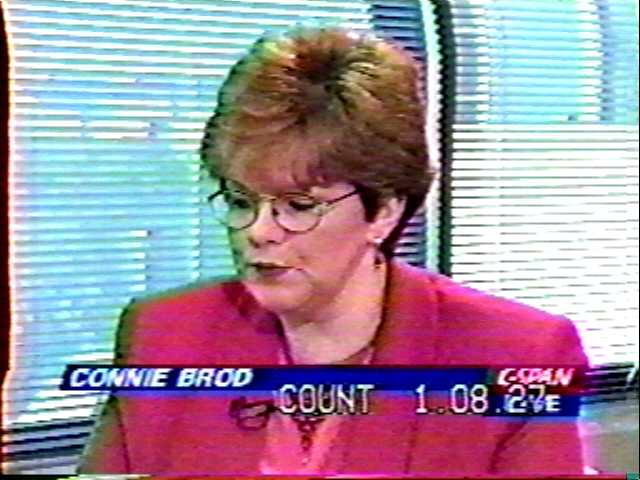
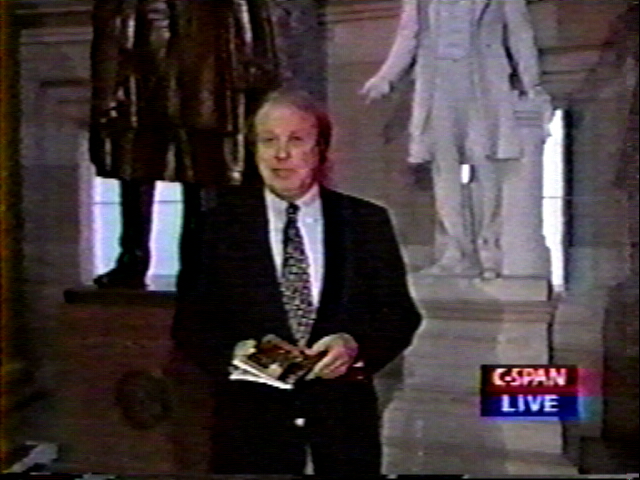


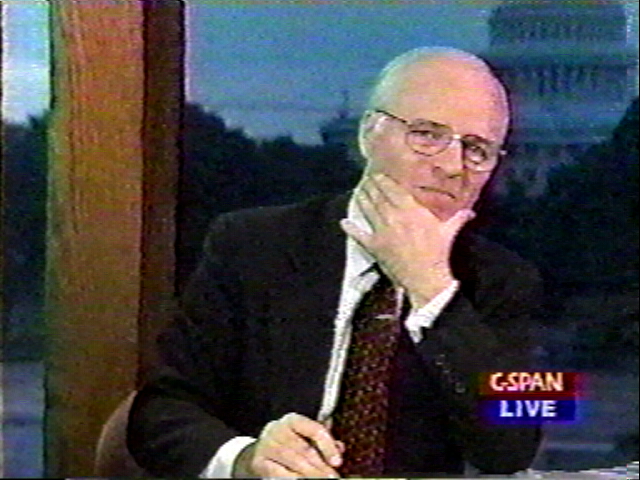

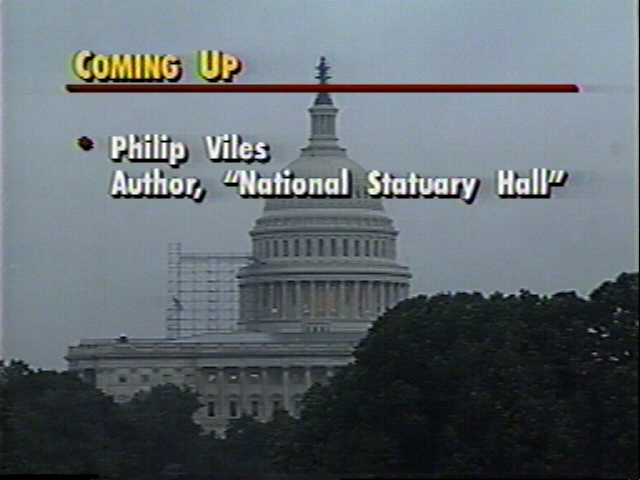
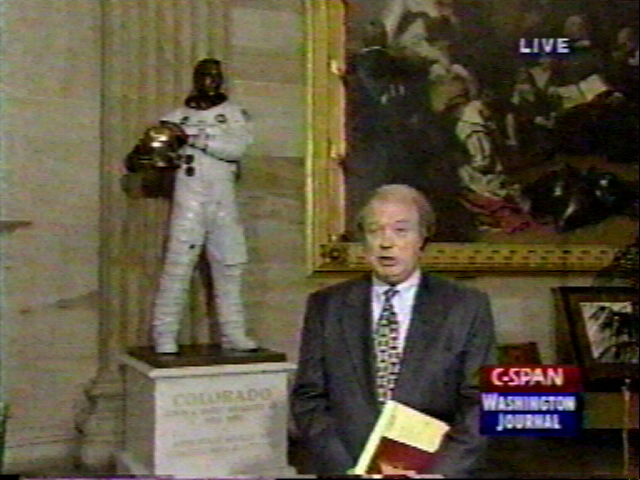

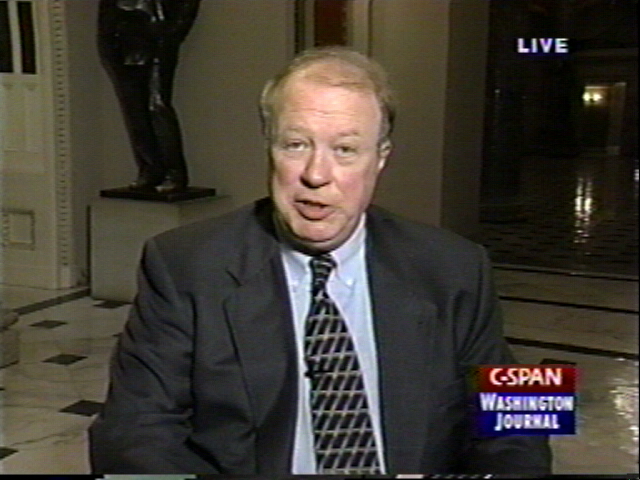


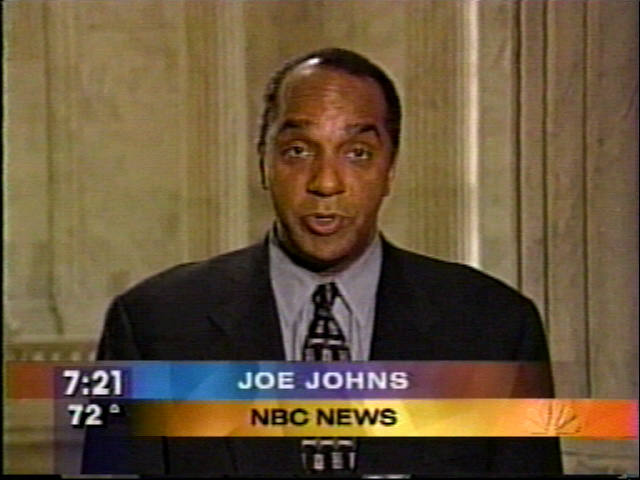
NBC News sent a two-man crew to Tulsa on April 15, 1999 to tape my comments on a possible move by Kansas to change its Statuary Hall nominees. Taping was done in the Dean’s office of the University of Tulsa College of Law. Story was aired on the “Today Show” in the summer of 1999.


